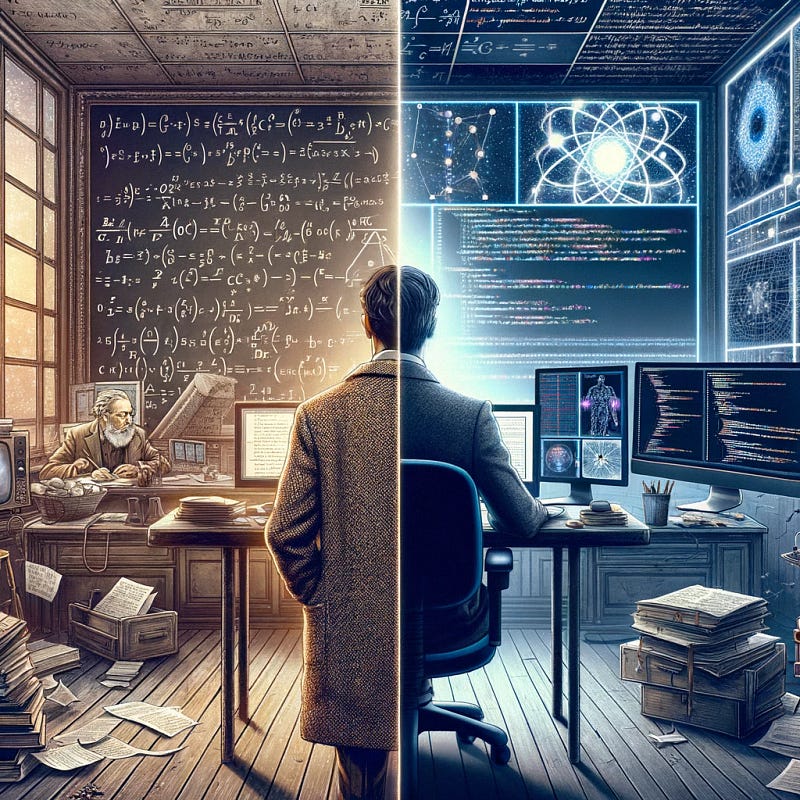The Evolution of Theoretical Physicists into Software Developers
Written on
Chapter 1: The Historical Context
When asked about the role of a theoretical physicist, many people picture someone engaged in complex mathematical equations, often scribbling on a blackboard to unveil new theories about the universe. While this notion held some truth in the past, particularly before the 21st century, the landscape has changed significantly.

The 20th century was a remarkable era for theoretical physics, yielding groundbreaking discoveries such as quantum mechanics and relativity. Most of the significant advancements in the field occurred during this period, which can be characterized as the golden age of physics. In contrast, the 21st century has seen fewer novel discoveries, with notable examples like the Higgs boson and gravitational waves primarily serving as experimental confirmations of previously established theories.
The changes in discovery rates, while challenging to quantify, highlight a notable trend: the methodology of theoretical physics has undergone a substantial transformation, largely due to the advent of digital computers.
Section 1.1: The Role of Computers in Physics
Prior to the digital age, computations were performed manually, requiring teams to engage in tedious calculations for solving differential equations, which are crucial in physics and engineering. The pace of research was slower, but this limitation forced physicists to derive clever analytical solutions to complex issues, deepening their understanding of fundamental phenomena. The clarity and simplicity found in the writings of figures like Einstein and Feynman illustrate the depth of their knowledge and the necessity of mastering these concepts.
Subsection 1.1.1: The Shift in Focus
Fast-forward to 2024, and the tasks of theoretical physicists increasingly resemble those of software engineers. While some still tackle complex problems without extensive coding, the majority now allocate significant portions of their time—often up to 80%—to writing code for numerical solutions or simulations related to experimental data. Utilizing commercial software like COMSOL has become commonplace in both industry and research and development settings.
Chapter 2: The New Career Path
It’s amusing to observe that many seasoned physicists have become proficient in multiple programming languages, from older ones like Fortran 77 to more contemporary languages such as Python and MATLAB. I once encountered a physicist with knowledge of COBOL, which is quite rare today.
The first video titled "From Physics to Software Engineering – building a non-traditional career path" provides insights into how physicists are adapting to new industry demands.
The shift in job roles has led numerous theoretical physicists to transition into fields like quantitative finance or data science after completing their PhD or postdoctoral positions. The rationale is straightforward: if one’s career revolves around writing and maintaining code, pursuing a more lucrative and stable job outside academia may be more appealing.
The second video, "How I Became a Software Engineer without a Computer Science Degree," explores alternative pathways into software engineering for those from a physics background.
In conclusion, the evolution of theoretical physics has increasingly aligned with software development, raising concerns about the future of the profession. While advancements in AI and machine learning promise to enhance productivity, they may also lead to job redundancy in the field. As we look to the future, we hope that this trend doesn’t lead to the obsolescence of theoretical physicists.